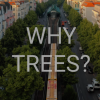News
Displaying Results 1 - 20 of 20
Extreme weather events exacerbated by climate change increasingly threaten the ability of countries worldwide, including those in the UNECE region, to sustain safe, reliable, and equitable transport and mobility.
Adapting to future impacts of climate change is therefore no longer a concern to be…
The transport sector is responsible for 23% of global greenhouse gas emissions, with road transport accounting for around 77% of these emissions. As populations, economies, and the need for mobility grow, the World Bank estimates that greenhouse gas (GHG) emissions from transport could increase by…
In today's data-driven world, organizations face the challenge of efficiently integrating and making sense of vast amounts of diverse data. Semantics and semantic interoperability provide a solution by enabling the meaningful interpretation and integration of data across heterogeneous systems. To…
As one of the United Nations regional economic commissions, UNECE has a key role to play in helping countries with economies in transition to better integrate into the global economy. UNECE is at the forefront of setting international standards on cross-border procedures, identifying regulatory and…
Picture your favorite tree-lined street or childhood park. Now picture it without trees. Would it be the same?
On 30 March, at the Regional Forum for Sustainable Development, UNECE debuted the short film “Why Trees?”, which invites us to reflect on our human connection with the trees around us.…
Electrification of vehicles is an important tool to align the transport sector with a climate neutral future and achievement of the Sustainable Development Goals (SDGs). Focused on climate actions, this year’s annual session of UNECE’s Inland Transport Committee (ITC) agreed on dedicated actions to…
Inland transport plays a crucial role in the global economy, connecting people, goods and services to markets and opportunities. However, the rapid growth in this sector has had a significant impact on the environment. The increasing demand for faster and more efficient modes of transport has led…
Standards touch nearly every aspect of our daily life through all the products that we use and consume each day (for example, mobile phones, vehicles, cleaning products, personal protection equipment, toys, and others). When they are produced or introduced on the market, products are checked for…
In the past years, Central Asia has been facing major climate-change related challenges – drought, floods, desertification, sandstorms, extreme cold and heat spells – and many more. Not only have these affected rural areas, but cities have been suffering, too. Accentuated by increased traffic…
Technologies can enhance commerce if clear international standards are in place to ensure that their use is harmonized between trading partners, and if there is regulatory coherence among countries.
Ways in which digital and green transformations can improve quality infrastructure for trade in…
Standards are in everything that surround us. Just the mobile phone in your pocket uses hundreds of standards, from the cellular network and the cable connectivity to physical elements such as the processing chips and the LED screen, not to mention security testing and the process design. We rely…
Cities, which are already responsible for around 75% of global CO2 emissions, are also at the forefront of fighting climate change and simultaneously are particularly vulnerable to its impacts. Urban trees and forests have been highlighted as a solution that can help to achieve the SDGs and make…
The COVID-19 pandemic has brought about immense changes in how people move around the world. International travel ground almost to a halt at the onset of the crisis, as restrictions were imposed and borders closed. Internal migration, too, was restricted in many countries as lockdowns were declared…
Policymakers looking for innovative solutions to global problems are increasingly recognizing that the answers have been around for a long time even before the earth got populated by humans. Trees can help achieve pressing global objectives for sustainable development, biodiversity conservation,…
The importance of statistical information to help us cope with disasters has never been clearer than over the past year. As the Covid-19 pandemic has gripped the world, numbers have become our bread and butter. Yet the pandemic has also highlighted the challenges and imperfections in many systems; …
A new working paper, Measuring Migration and Remittances in UNECE Countries during the Pandemic, reveals both innovative solutions and continued hurdles as countries strive to gather information about international migration under pandemic conditions.
The onset of the Covid-19 pandemic brought…
COVID-19 has significantly changed the way UN/CEFACT works. As the focal point within the United Nations Economic and Social Council for trade facilitation recommendations and electronic business standards, UN/CEFACT typically convenes experts twice per year to a week-long Forum to discuss current…
With the consequences of COVID-19 still unfolding, one area of major disruption has been to global food systems, resulting in significant increases in food loss and waste.
Today, the first ever International Day of Awareness of Food Loss and Waste, is a wake-up call. We must access and make…
Risk is a part of our everyday lives. When we wear a helmet to ride a bike, for example, we accept a small inconvenience to reduce the risk of a fall or an accident. When a homeowner decides to retrofit their house, they incur a cost to shield against an earthquake or a flood. Faced with the COVID…
Every year we lose about 14% of the food produced before it is sold, and this does not even include the food never harvested. Even more is wasted at retail and consumer levels. At the same time, over 800 million people worldwide suffer from hunger, while food loss is a major contributor to CO2…


















